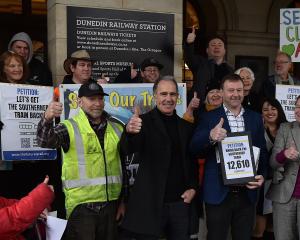
Environment Southland maintains a steady focus on flood risk mitigation and managing our extensive network of flood defences across Southland — drainage networks, dams, tidal gates, floodways, pump stations and over 500km of flood banks.
This network is designed to reduce the effects of flooding on people, property and critical infrastructure like main roads, telecommunications and the airport.
There has been good progress on improving our flood infrastructure with assistance from the government in co-funding arrangements.
This is a relationship we continue to value and we are hopeful of further financial support soon, for more projects that support Southland communities.
Recently, we completed improvements at Otautau (Aparima River) and preparations are under way for the Te Anau Basin and a three-year project on the Ōreti River that includes Dipton and Winton.
Modern technology is an increasingly valuable tool in planning for greater resiliency.
We are in the final stages of a modelling project to develop flood risk scenarios for the Ōreti and Aparima rivers and New River Estuary.
The bathymetric LiDAR (light detection and ranging) survey uses sensors to map the contours of the riverbeds in 3-D.
It will provide sound information for decision making when investing in the network, lead to improvements in infrastructure management and assessing flood risk, including in relation to gravel movement.
We have geotechnical investigations under way along flood banks in Gore and Mataura, using ground penetrating radar to gain detailed, non-invasive imaging of what lies underground.
This will provide reliable information for improved maintenance and monitoring of how our flood banks perform and change over time.
These work programmes are designed to increase the region’s resilience to floods. We will be keeping communities up to date on the project progress.
— Wilma Falconer, Environment Southland chief executive.












